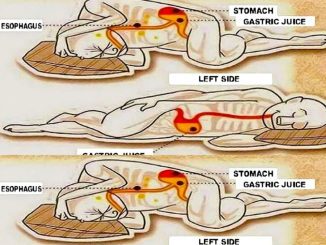
Kidney stones are among the most painful health issues you can face. If you’ve ever had one, you know the intense discomfort of trying to pass those hard mineral deposits. What many people don’t realize is that diet plays a massive role in their formation. Some of the everyday foods you eat could be silently increasing your risk of developing kidney stones. By knowing the culprits, you can make smarter choices to protect your kidneys and avoid that unbearable pain.
Here are the 17 worst offenders that may be hurting your kidneys without you even realizing it.
Spinach: A Superfood with a Downside
Spinach is packed with vitamins and minerals, but it also contains high levels of oxalates. These compounds bind to calcium in your body, increasing the risk of calcium-oxalate kidney stones. While spinach is healthy in moderation, eating it daily in large amounts may be problematic if you’re prone to stones.
Chocolate: Sweet but Risky
Dark chocolate may be full of antioxidants, but it’s also high in oxalates. For chocolate lovers, overindulging can raise your chances of kidney stone formation. If you can’t give it up, enjoy it in small portions and balance it with other low-oxalate foods.
Coffee: Energy with a Catch
Coffee is loved for its energy-boosting qualities, but it carries risks for your kidneys. Not only does it contain oxalates, but caffeine also acts as a diuretic, increasing fluid loss and dehydration. Since dehydration is one of the top causes of kidney stones, limit your coffee intake to avoid overloading your kidneys.
Nuts: Healthy but High in Oxalates
Almonds, peanuts, and cashews are rich in healthy fats and protein, yet they are also oxalate-heavy. If you’re prone to kidney stones, it may be better to switch to other snacks like sunflower seeds or walnuts, which are lower in oxalates.
Potatoes: Especially the Skins
White potatoes are another surprising source of oxalates, with the highest levels found in their skins. If you enjoy potatoes often, consider peeling them and pairing them with calcium-rich foods to reduce stone risk.
Berries: Antioxidants with a Catch
Raspberries and blackberries are nutrient-rich and full of antioxidants, but their oxalate content makes them risky in large quantities. Enjoy them in moderation and mix them with low-oxalate fruits like apples or bananas.
Beets: Oxalate Overload
Beets are highly nutritious and great for blood pressure, but they are also oxalate powerhouses. Eating them frequently can significantly raise your risk of stones if you’re already predisposed.
Video : 17 Foods That Turn Into Kidney Stones! Stop Eating These Kidney Stone Causing Foods!
Processed Foods: The Sodium Problem
High-sodium processed foods make your kidneys work overtime. Too much salt leads to excess calcium in the urine, which encourages stone formation. From packaged snacks to frozen dinners, cutting back on processed foods is one of the best ways to protect your kidneys.
Soda: A Hidden Stone-Former
Dark sodas, in particular, contain phosphoric acid, which promotes calcium deposits in the kidneys. Add in their high sugar content, and sodas are one of the biggest dietary threats for stone formation. Swap soda for water, infused water, or unsweetened tea.
Red Meat: Protein and Uric Acid
Eating too much red meat can lead to a buildup of uric acid, one of the main culprits behind uric acid kidney stones. While lean cuts are fine in moderation, a diet heavy in steaks, burgers, and sausages can set the stage for trouble.
Dairy Products: Calcium in Excess
Calcium is essential for bone health, but consuming too much dairy can contribute to calcium-based stones. Balance is key—moderate portions are fine, but avoid going overboard with cheese, milk, and yogurt.
Vitamin C Supplements: Too Much of a Good Thing
High doses of vitamin C can convert into oxalates in the body, increasing your risk of kidney stones. It’s safer to get vitamin C from natural sources like citrus fruits rather than relying on supplements.
Wheat Bran: Fiber with a Hidden Risk
Though wheat bran is high in fiber and supports digestion, it’s also loaded with oxalates. If you’re at risk of stones, opt for other high-fiber foods such as oats, flaxseeds, or barley.
High-Salt Foods: Calcium Excreters
Salt is everywhere—from chips to fast food. Excess sodium forces your kidneys to excrete more calcium, raising the risk of stone development. Stick to a low-sodium diet and season with herbs instead of salt.
Alcohol: A Double Threat
Alcohol dehydrates the body and increases uric acid levels, making it a double threat to kidney health. While moderate drinking may not cause harm, heavy or frequent alcohol use is a serious risk factor for stones.
Swiss Chard: Another Oxalate-Rich Green
Like spinach and beets, Swiss chard is packed with oxalates. Though it’s nutrient-rich, frequent or large servings could put you at higher risk if you’re prone to kidney stones.
Grapefruit: Not as Innocent as It Seems
Grapefruit juice can lower citrate levels in the urine. Citrate normally helps prevent stone formation, so reduced levels make it easier for stones to develop. If you enjoy citrus, opt for lemons or oranges instead.
How to Protect Your Kidneys from Stones
The good news is you don’t need to give up all of these foods forever—you just need balance and awareness. Here are a few practical steps to lower your risk:
- Stay hydrated: Drink at least 8 glasses of water daily to flush out minerals.
- Limit oxalates: Reduce portions of oxalate-heavy foods if you’re prone to stones.
- Eat a balanced diet: Pair oxalates with calcium sources to minimize absorption.
- Cut sodium: Avoid processed and salty foods to protect kidney function.
- Manage protein intake: Choose lean proteins and keep red meat in moderation.
Video : 17 Foods That Turn Into Kidney Stones! Stop Eating These Kidney Stone Causing Foods!
Final Thoughts: Your Diet Shapes Your Kidney Health
Kidney stones are painful, but they’re often preventable. By paying attention to the foods you eat and making smart swaps, you can protect your kidneys and reduce your risk of stones. Moderation is the key—most of these foods aren’t “bad” in small amounts, but daily overconsumption can be a recipe for kidney trouble.
Listen to your body, stay hydrated, and fuel yourself with balance. Your kidneys will thank you with years of strong, silent service.


